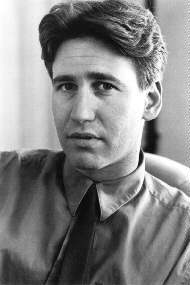 Oakland, Calif., journalist Gary Rivlin
Oakland, Calif., journalist Gary Rivlinis the author of "Drive-By" published by Holt.
On Monday, July 9, 1990, three black youths in Oakland were involved in a drive-by shooting in which a 13-year-old boy, Kevin Reed, was killed in a case of mistaken identity. Journalist Gary Rivlin dissected the entire incident, delving into the background of the shooter and his friends to the family life of the victim, from the police investigation of the crime to the reactions of the families involved. The result is a well-written non-fiction study "Drive-By" (Holt, $25, 1995).
Rivlin, a writer for the weekly East Bay Express, said the book began with the desire to write about "the human side of this country's youth violence epidemic" and in that regard he succeeded wonderfully. A comparison of the book "Drive-By" with the basketball movie "Hoop Dreams" works because in both instances black stereotypes are destroyed. Rivlin has done a great job. He asks the reader, between the lines, to answer the following questions: What would you be like if you grew up under the same circumstances? If you raised your kids in the killing zone, would they be any different?
In fact, Rivlin says inspiration for the book came from seeing the 1991 movie "Boyz N the Hood" in which a divorced father in South Central L.A. tries to raise his son with traditional values, which are given short shrift on the street.
And if I haven't convinced you already that this is a great book, let me assure you of one other thing. Rush Limbaugh would hate it. "It's for liberals," he'd sneer. But in this, as in so many other areas of modern contemporary thought, Rush would be wrong. Rivlin doesn't provide excuses for the three teen-agers involved in the murder. He simply describes who they are.
"My aim," says Rivlin, "was to put a human face on two-dimensional monsters, these young killers; to try to get people to imagine raising their own kids there; to take on the myth that it's just these bad kids from bad families doing these bad things."
If you ask "What's wrong with these kids?" Rivlin is likely to reply: "The same thing that would be wrong with some of your kids if they grew up there. It's a wonder as many kids thrive as they do given lousy underfunded schools, the guns, the drug-dealing."
When jobs go, crack takes over and fathers disappear. Between 1980 and 1984 at least 122 factories representing more than 16,000 jobs closed their doors in Alameda County. Guns can be bought for as little as $25. The allure of easy drug money is constant.
"Drive-By" began as a series of articles on youth violence for the East Bay Express. Those articles won several awards and encouraged Rivlin to write the book.
"At the start of 1992 I bought a notebook with the idea of filling it with the news accounts of people murdered in Oakland that year. I focused on murders relegated to the briefs section of the dailies, people whose lives were dismissed in three to five paragraphs deep in the back of the Metro section. What was more pressing than the fact that teens were shooting each other in the street?"
Rivlin says he doesn't have the answers, but he's willing to talk about the problem. "I don't pretend to be an expert in this field. I taught myself a little bit about lots of topics - guns, crack, welfare - so I could write and speak intelligently on the topic but I don't pretend to have the answers. For starters, though, we should all start caring more. There's an epidemic out there, yet when's the last time you heard a politician talking about it as a major issue in this country? They propose easy solutions (three strikes, making drive-bys capital cases) when these are complex problems."
Rivlin says the most gratifying response to his book has come from the people he wrote about including the dead boy's mother and brother as well as those imprisoned for the crime.
"All were pleased with the final product and thought their participation worthwhile," said Rivlin.
Rivlin, 37, grew up in the New York area and went to Northwestern University. His first book was "Fire on the Prairie: Chicago's Harold Washington and the Politics of Race." He moved to California in 1990. He and his wife live in Oakland.
 Oakland, Calif., journalist Gary Rivlin
Oakland, Calif., journalist Gary Rivlin
is the author of "Drive-By" published by Holt.
Elisabeth Sherwin's interview
with Gary Rivlin can be found in
'''Drive-By' describes life on mean
streets of inner-city Oakland"
the November 26, 1995,
PRINTED MATTER column.